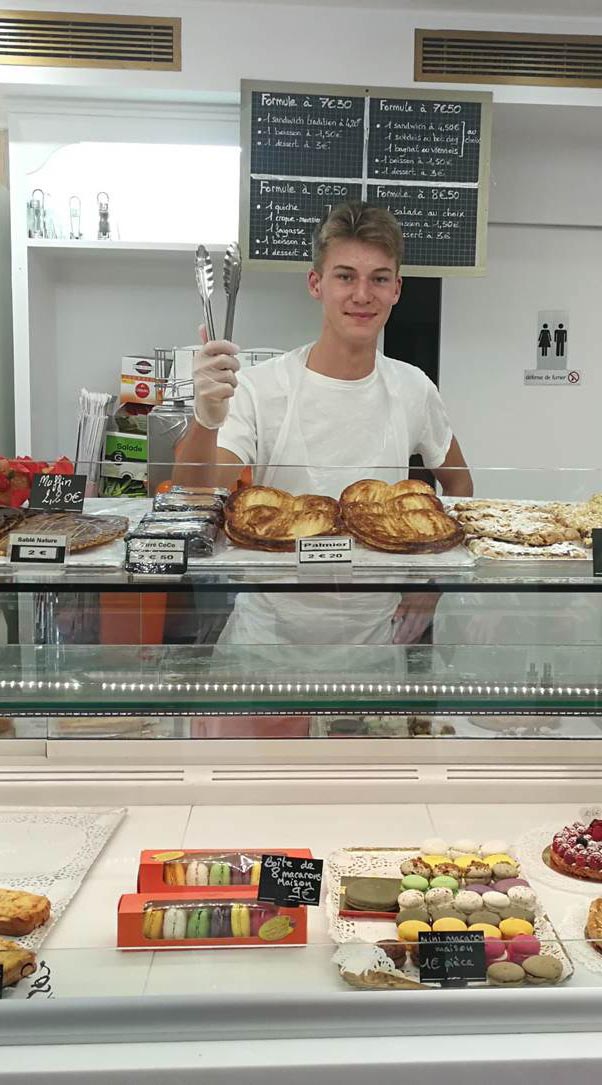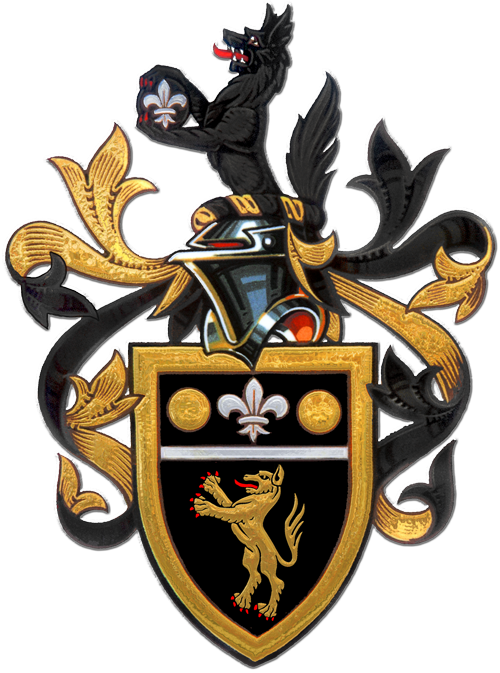Modern Foreign Languages
Our Modern Foreign Languages curriculum is ambitious, broad, and meticulously sequenced to ensure steady progress and deep linguistic understanding. Starting in Year 7, students study French or German, with the option to add Spanish in Year 9. The curriculum is designed to develop all four key language skills—listening, speaking, reading, and writing—through a structured approach that builds year on year. By the time students take their GCSE exams, they are equipped with a comprehensive understanding of language and culture. Our careful sequencing ensures that each stage prepares students for the next, fostering confidence and fluency in communication.
Our Staff
Mme Mulcahy (Head of Modern Foreign Languages)
Mr Fletcher (Head of German)
Mrs Barnwell (Head of Spanish)
Ms Golland (Head of Year 9)
Mrs Kitson
Mme Renaut (Assistant SENCO)
Miss Tahir
Key Stage 3
KS3 builds on the foundation of Primary Language skills and we aim to offer a smooth transition in language skills and knowledge from Year 6 to Year 7. Students will be assessed in listening, reading, speaking and writing. There will be regular assessments each term.
The department’s curriculum is very consistent with the National Curriculum and is in line with the school’s curriculum aims which are to challenge our students through:
- Knowledge
- Breadth
- Depth
In Year 7, all students study one language from either German or French up to GCSE.
We cover a wide area of topics in modules. Students acquire new vocabulary and transferable language skills that they can build on in Y8.
In Year 8 all students continue with their language. At the end of Year 8, students have the option to study Spanish ab initio up to GCSE.
Topics covered
Topics covered
Year 7 French
Phonics & Target Language
Likes And Dislikes
Classroom Objects
Politeness In French
Numbers / Age
Birthday
Family And Pets
Physical Description
Poetry
Where We Live
Using A Dictionary
House Description
Francophonie: Le Mali
The Time
Daily Routine
How We Help At Home
Asking Questions
Places In Town
Where You Go
School Subjects
School Description
Transport
Sports And Hobbies
Future Plans
Body Parts
Pains
Short Film Study
Cultural Project
Year 8 French
Phonics
Weather
Free Time
Town
Directions
Activities We Can Do In Town
Planning A Trip To Paris
Asking Questions
Jobs
Invitations
Formal Letter
Food & Drinks
Past Tense
Clothes
Haiku
Sound Poems
Getting To Know France
Issues With Accommodation
Drama
Cultural Project
Year 7 German
Greetings / Name
Where You Live
Classroom Objects & Language
Numbers /Age
Where You Come From
Family / Friends
Personal& Physical Description
Pets / Colours
Possessions
Asking Questions
Houses / Opinion
Places In Town
Rooms / Where Things Are
Clothes
Leisure Activities
Complex Opinions
House Work
School Routine
The Time
School Subjects
School In Germany
Daily Routine
Talking About Future Activities
Year 8 German
Leisure (Free Time)
Perfect tense
Phonics
Clothes
School uniform
Expressing opinions
Shopping Trip
Reading and writing a poem
Meal In A Restaurant
Media (Cinema / Films / Books / Websites)
New Year’s Eve celebrations
Making plans with friends
Transport
Weather
Town Versus Countryside
Health (diet, sport, smoking)
Work
Holidays
KS3 Core Concepts
| 1 Listening and speaking |
EXCEEDING: Students understand and respond appropriately to extended spoken language in speaking and in writing at near-normal native speaker speed on familiar topics. They cope impressively with unexpected questions or responses which contain unfamiliar elements. Listening, they can transcribe short sentences with almost complete accuracy. Speaking, they demonstrate a very good standard of pronunciation and intonation, with occasional hesitation. Listening and Speaking materials refer to past, present and future tenses and include time phrases. SECURE: Students understand and respond appropriately to extended spoken language in speaking and in writing at slightly slower than normal native speaker speed. They cope well with unexpected questions or responses. Listening, they can transcribe short sentences with a good level of accuracy. Speaking, they demonstrate a reliable standard of pronunciation and intonation, with some hesitation. Listening and Speaking materials refer to past, present and future tenses and include time phrases. DEVELOPING: Students understand and respond appropriately to essential spoken language in speaking and in writing at slower than normal native speaker speed. They usually cope well with familiar questions or responses. Listening, they can transcribe short sentences with a limited level of accuracy. Speaking, they demonstrate a developing standard of pronunciation and intonation, with hesitation. Listening and Speaking materials refer to past, present and future tenses and include time phrases. |
| 2 Reading and writing |
EXCEEDING: Students understand and respond to extended written language in speaking and in writing, which contains unpredictable elements. Reading and Writing materials refer to past, present and future tenses and are understood at an impressive level for Year 8, including time phrases. They translate suitable extracts into the target language and English with an excellent level of accuracy. They write, from memory or creatively, coherent extended pieces of prose, using a wide ranging vocabulary and complex grammatical structures. SECURE: Students understand and respond to longer texts, which contains a few unpredictable elements, in speaking and in writing. Reading and Writing materials refer to past, present and future tenses and are understood at a very good level for Year 8, including time phrases. They translate suitable extracts into the target language and English with a very good level of accuracy. They write, from memory or creatively, coherent longer pieces of prose, using a wide range of vocabulary and grammatical structures. DEVELOPING: Students understand and respond to shorter texts, which contains familiar elements, in speaking and in writing. Reading and Writing materials refer to past, present and future tenses and are understood at a basic level for Year 8, including time phrases. They translate suitable extracts into the target language and English with a developing level of accuracy. They write, from memory or creatively, longer pieces of prose, using a limited range of vocabulary and grammatical structures. |
| 3 Understanding and accurate application of grammar and vocabulary |
EXCEEDING: Students can research and use verbs in the present, past and future tenses with an excellent level of accuracy. They manipulate with consistent success a range of more complex grammatical features such as: conjunctions, direct object pronouns, voices and moods, demonstrative adjectives and pronouns, and relative pronouns. Students’ grasp of vocabulary is very secure, and they use spelling and punctuation with an excellent level of accuracy. SECURE: Students can research and use verbs in the present, past and future tenses with a good level of accuracy. They manipulate with some success a range of complex grammatical features such as: conjunctions, direct object pronouns, voices and moods, demonstrative adjectives and pronouns, and relative pronouns. Students’ grasp of vocabulary is secure, and they use spelling and punctuation reliably. DEVELOPING: Students can research and use verbs in the present, past and future tenses with some level of accuracy. They achieve occasional success across a range of grammatical features such as: conjunctions, direct object pronouns, voices and moods, demonstrative adjectives and pronouns, and relative pronouns. Students’ vocabulary is developing, and they use spelling and punctuation with an increasingly sure grasp. |
Key Stage 4
French, German and Spanish follow the AQA GCSE Specification.
This year, the department is launching the new MFL GCSE specification with Year 10 students. OurYears 7, 8 and 9 MFL curriculum has already been updated to reflect these coming changes.
The course provides students with a wide area of topics that are covered in the GCSE exams. These courses build on the skills and knowledge from KS3 and students will learn new language structures and vocabulary based on three distinct themes. These themes apply to all four question papers.
Students are expected to understand and provide information and opinions about these themes relating to their own experiences and those of other people, including people in countries/communities where French/German/Spanish is spoken.
Year 9 topics
French
- Health
- Education
- Film Study 1
- Leisure
- Celebrity Culture
- The Environment
- Media
- Literature
- Social Issues
- Film Study 2
German
- Family & Relationships
- Home Life
- House And Local Area
- School
- Tv
- Cinema
- Music
- Customs and festivals
- Food And Eating Out
- Sports
Spanish Beginners
- Phonics
- Greetings / Numbers / Classroom Language
- Family / Physical Descripton
- Education
- Food & Drinks
- Free Time Activities
- Celebrity Culture
- Home & Local Area
- Future Plans
- Holidays
Year 10 topics
New GCSE Specification for teaching from September 2024 onwards
Theme 1: People and Lifestyle
Topic 1: Identity and relationships with others
Topic 2: Healthy living and lifestyle
Topic 3: Education and work
Theme 2: Popular Culture
Topic 1: Free time activities
Topic 2: Customs, festivals and celebrations
Topic 3: Celebrity culture
Theme 3: Communication and the World Around Us
Topic 1: Travel and tourism, including places of interest
Topic 2: Media and technology
Topic 3: the environment and where people live
We use a variety of resources such as games, clips, songs, stories and other authentic material. There will also be a greater focus on talking spontaneously, translations and literary texts (poems, songs, films etc.), which will also form part of the new GCSE exams.
The course is assessed in the following way:
- Reading Exam (end of Y11: 25%)
- Listening Exam (end of Y11: 25%)
- Writing Exam (end of Y11: 25%)
- Speaking Exam (towards end of Y11: 25%)
Current Year 11 topics
(final year of teaching the 2016 specification)
French, German, Spanish Beginners
Theme 1: Identity and Culture
Topic 1: Me, my family and friends
- Relationships with family and friends
- Marriage/partnership
Topic 2: Technology in everyday life
- Social media
- Mobile technology
Topic 3: Free-time activities
- Music
- Cinema and TV
Topic 4: Customs and festivals in French/German/Spanish-speaking countries / communities
- Food and eating out
- Sport
Theme 2: Local, national, international and global areas of interest
Topic 1: Home, town, neighbourhood and region
Topic 2: Social issues
- Charity/voluntary work
- Healthy/unhealthy living
Topic 3: Global issues
- The environment
- Poverty/homelessness
Topic 4: Travel and tourism
Theme 3: Current and future study and employment
Topic 1: My studies
Topic 2: Life at school/college
Topic 3: Education post-16
Topic 4: Jobs, career choices and ambitions
We use a variety of resources such as games, clips, songs, stories and other authentic material. There will also be a greater focus on talking spontaneously, translations and literary texts (poems, songs, films etc.), which will also form part of the new GCSE exams.
The course is assessed in the following way:
- Reading Exam (end of Y11: 25%)
- Listening Exam (end of Y11: 25%)
- Writing Exam (end of Y11: 25%)
- Speaking Exam (towards end of Y11: 25%)
Key Stage 5
French, German and Spanish are offered in the sixth form at AS and A2 Levels, following the AQA GCE Specification.
The courses naturally extend the knowledge and skills that students will have acquired at GCSE: not only in terms of grammar, vocabulary and spoken fluency, but also in terms of developing an appreciation of the deeper nature of the language, a consideration which goes hand in hand with the study of social, historical, literary and cultural aspects of the countries where the target language is spoken.
During the A Level course students study the following main topics:
French
Social issues and trends
- Aspects of French-speaking society: current trends — The changing nature of family (La famille en voie de changement); the 'cyber-society' (La « cyber-société »); the place of voluntary work (Le rôle du bénévolat).
- Aspects of French-speaking society: current issues — Positive features of a diverse society (Les aspects positifs d'une société diverse); Life for the marginalised (Quelle vie pour les marginalisés?); How criminals are treated (Comment on traite les criminels)
Political and artistic culture
- Artistic culture in the French-speaking world- —A culture proud of its heritage (Une culture fière de son patrimoine); Contemporary francophone music (La musique francophone contemporaine); Cinema: the 7th art form (Cinéma : le septième art)
- Aspects of political life in the French-speaking world — Teenagers, the right to vote and political commitment (Les ados, le droit de vote et l'engagement politique); Demonstrations, strikes – who holds the power? (manifestations, grèves – à qui le pouvoir ? ); Politics and immigration (La politique et l'immigration)
They also study two ‘works’, currently the French film La Haine by Mathieu Kassovitz and the French novel No et moi by Delphine de Vigan.
German
Social issues and trends
- Aspects of German-speaking society : the changing state of the family (Familie im Wandel); The digital world (Die digitale Welt); Youth culture: fashion and trends, music, television (Jugendkultur: Mode, Musik und Fernsehen)
- Multiculturalism in German-speaking society: immigration (Einwanderung); Integration (Integration); Racism (Rassismus)
Political and artistic culture
- Artistic culture in the German-speaking world: festivals and traditions (Feste und Traditionen); Art and architecture (Kunst und Architektur); Cultural life in Berlin, past and present (Das Berliner Kulturleben damals und heute)
- Aspects of political life in the German-speaking world: Germany and the European Union (Deutschland und die Europaïsche Union); Politics and youth (Die Politik und die Jugend); German re-unification and its consequences (Die Wiedervereinigung und ihre Folgen)
They also study two artistic ‘works’. In year 12, they study Florian Henckel von Donnersmarck’s Oscar-winning film Das Leben der Anderen (The Lives of Others), and in year 13 they study Franz Kafka’s classic novella Die Verwandlung (The Metamorphosis).
Spanish
Social issues and trends
- Aspects of Hispanic society: los valores tradiciones y modernos (traditional and modern values); el ciberespacio (cyberspace); la igualdad de los sexos (gender equality)
- Multiculturalism in Hispanic society: la inmigración (immigration); el racismo (racism); la convivencia (integration)
Political and artistic culture
- Artistic culture in the Hispanic world: la influencia de los ídolos (modern day idols); la identidad regional en España (Spanish regional identity); el patrimonio cultural (cultural heritage)
- Aspects of political life in the Hispanic world: Jóvenes de hoy, ciudadanos de mañana (today’s youth, tomorrow’s leaders); monarquías y dictaduras (monarchies and dictatorships); movimientos populares (popular movements)
They also study two ‘works’, currently the Spanish film El Laberinto del Fauno, directed by Guillermo del Toro and the Columbian novella El Coronel No Tiene Quien Le Escriba by Nobel Prize winning Gabriel García Márquez.
Students also present an Individual Research Project on a topic of their choice at the end of the two-year course as part of the oral examination.
The course is assessed in the following way:
EXAM Paper 1: Listening, Reading and Writing
End of AS – Written Exam: 1 hour 45 minutes (90 marks) – 45% of AS
End of A Level – Written Exam: 2 hours 30 minutes (100 marks) – 50% of A Level
EXAM Paper 2: Writing
End of AS – Written Exam: 1 hour 30 minutes (50 marks) – 25% of AS
End of A Level – Written Exam: 2 hours 30 minutes (80 marks) – 20% of A Level
Support
Enrichment
Our department offer students the opportunity to work and learn in additional revision clubs, such as “the MFL Clinic” for example. These give the students the opportunity to revise work that has been covered in preparation towards exams but they also try to offer the students a broader perspective on their studies.
In recent years we have been able to offer trips such as the following:
- Year 9 language trip to Côte d’Opale, France
- Year 9 language trip to Cologne, Germany
- Theatre visits
- Primary school visits
- Year 12 &13 work experience in Paris, France
- Year 12 &13 cultural visit in Berlin, Germany
- Year 12 &13 cultural visit in Madrid, Spain
Further links
KS4 & KS5
Kerboodle (username and password given at the beginning of the year)
KS3 & KS4
Linguascope (username and password given at the beginning of the year)
Quizlet
Memries
Zut!
BBC Bitesize
Examples of marked work
See below for examples of marked work which demonstrate the level of work and ‘green pen’ engagement required to maximise progress in each Key Stage. Whilst we expect students to engage with this positively and if necessary, seek clarification from teachers, please be assured that in-lesson support is always available.


